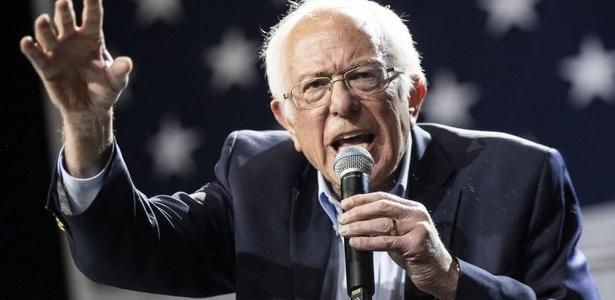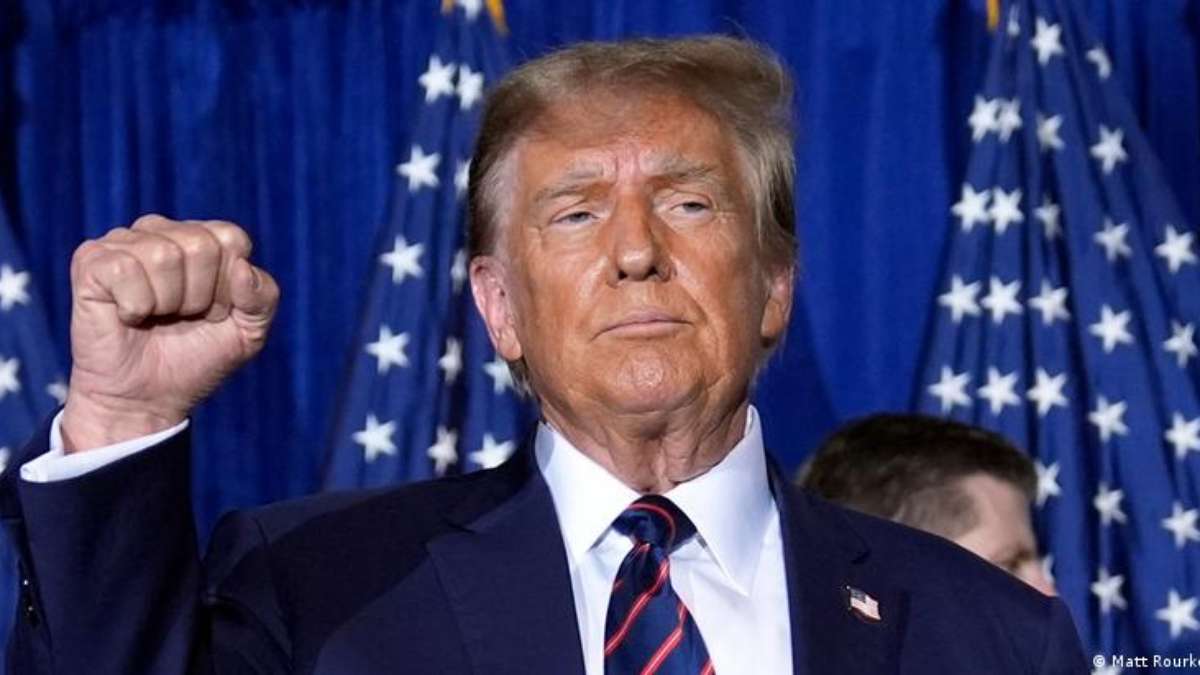Justice New York Today, Friday, the 16th of this month, a fine was imposed on the former president of… we Donald Trump Nearly 355 million US dollars (equivalent to about 1.76 billion Brazilian reais) and a ban on managing his business for three years, according to the ruling.
“Court bans Donald Trump […] “From serving as an officer or director of any New York corporation or other legal entity in New York for a period of three years,” Judge Arthur Engoron wrote in his ruling, ordering the Republican businessman to pay a fine of $354,868,768.
Trump, who built his reputation as a real estate mogul, was also banned from serving as a director or officer of any New York company for three years. However, the judge retracted a previous decision that required the former president’s companies to be dissolved.
Trump's lawyers promised to appeal. Lawyer Alina Haba described the ruling as a “blatant injustice” and “the culmination of a politically motivated witch hunt that has lasted for several years.” She and Trump lawyer Christopher Case said the ruling, if upheld, would harm the business environment.
Judge Arthur Engoron issued his ruling after a two-and-a-half-month trial, which saw the Republican presidential candidate fume after being sworn in, claiming that he was the victim of a rigged legal system.
Trump and his companies were ordered to pay $355 million. His eldest sons, Trump Organization executive vice presidents Donald Trump Jr. and Eric Trump, were ordered to pay $4 million each. Former CFO Allen Weisselberg was ordered to pay $1 million.
Engoron concluded that Trump and the other defendants “did not accept responsibility” for their actions and that the expert witnesses who testified for the defense “simply denied reality.” The judge described the civil fraud at the heart of the trial as a “venial sin, not a mortal sin.”
“They did not rob a bank at gunpoint. Donald Trump is not Bernard Madoff. And yet the defendants are unable to admit what they did wrong,” Engoron, a Democrat, wrote. He said their “complete lack of remorse and remorse” amounts to sickness.
“The frauds found here leap off the page and shock the conscience,” the judge added.
The harsh punishment was a victory for New York Attorney General Letitia James, a Democrat, who prosecuted Trump not just for simple boasting but for years of deceptive practices while building his multinational collection of skyscrapers, golf courses and other properties that catapulted him to wealth. And fame and White House.
Trump's lawyers had said before the ruling was issued that they would appeal the ruling. James sued Trump in 2022 under a state law that allows investigations into ongoing business fraud.
The lawsuit accused Trump and the other defendants of routinely inflating their financial statements to create the illusion that their properties were more valuable than they actually were. State attorneys said Trump exaggerated his wealth by as much as $3.6 billion in one year.
By appearing wealthier, Trump qualified for better loan terms, saved on interest, and was able to complete projects he otherwise might not have completed, state attorneys said.
Before the trial began, Engoron ruled that James had proven that Trump's financial statements were fraudulent. The judge ordered that some of Trump's companies be removed from his control and dissolved. The Court of Appeal suspended this ruling.
In that earlier ruling, the judge concluded that, among other deceptions, Trump's financial statements falsely stated that his Trump Tower apartment was roughly three times larger than its actual size. He overestimated the value of his Mar-a-Lago property in Palm Beach, Florida, based on the idea that the property could be developed for residential useAlthough he waived the rights to develop it for any use other than the club.
Trump, one of 40 witnesses who testified at the trial, said his financial statements actually understated his net worth and that the banks had done their own research and were satisfied with their actions. “There was no victim. There was nothing,” Trump testified in November.
During the trial, Trump described the judge as “very hostile” and the prosecutor as a “political mercenary.” In a six-minute scathing speech during closing arguments in January, Trump declared “I am an innocent man” and called the case a “hoax on me.”
A judge confirmed on Thursday that the trial in the case of silencing Trump's witnesses will begin on March 25, and an Atlanta judge heard arguments on whether Fulton County Prosecutor Fanny Willis will be removed from the Georgia election interference case because she has a personal interest. . The relationship with the special prosecutor you appointed.
These criminal charges do not appear to have undermined his path toward the Republican presidential nomination, but the civil lawsuits threatened him financially.
On January 26, a jury ordered Trump to pay $83.3 million to writer E. Jane Carroll for defaming her after she accused him in 2019 of sexually assaulting her in a Manhattan store in the United States in the 1990s, in addition to $5 million. Who paid it on January 26. A jury awarded Carroll in a related trial last year.
In 2022, the Trump Organization was convicted of tax fraud and fined $1.6 million in an unrelated criminal case for helping executives evade taxes on expensive perks like apartments and luxury cars in Manhattan. James asked the judge to impose a fine of at least $370 million.
Engoron decided the case because neither side requested a jury and state law does not allow a jury for that type of lawsuit. Because the case was civil, not criminal, it did not involve the possibility of imprisonment.
James, who campaigned as a Trump critic and observer, began scrutinizing his business practices in March 2019 after her former personal attorney Michael Cohen testified before Congress that Trump exaggerated his wealth in financial statements submitted to Deutsche Bank while trying to obtain financing to purchase the NFL's Buffalo Bills. .
James' office previously sued Trump for using his charitable foundation to advance his political and business interests. Trump was ordered to pay $2 million to a number of charities in fines, and the organization, the Trump Foundation, was shut down.
Trump founded the Trump Organization in New York in 1981. He still owns it, but placed its assets in a revocable trust and resigned his positions as director, chairman and president of the company when he became president, leaving management of the company to Eric. Trump and Donald Trump Jr.
Trump did not return to a declared leadership position when he left the White House in 2021, but his children testified that he participated in some decision-making processes. Engoron had already appointed one person, retired federal judge Barbara Jones, to monitor the company. /AP

“Music fanatic. Professional problem solver. Reader. Award-winning tv ninja.”

/https://i.s3.glbimg.com/v1/AUTH_bc8228b6673f488aa253bbcb03c80ec5/internal_photos/bs/2023/Y/h/7pMEYST5CwB5de2ljgbw/cruzeiro-ronaldo-pedro-lourenco-pedrinho-bh-02.jpeg)



:strip_icc()/i.s3.glbimg.com/v1/AUTH_e84042ef78cb4708aeebdf1c68c6cbd6/internal_photos/bs/2023/h/V/owY8MTTniAkFrSPaEfJQ/samara-felippo.jpg)

More Stories
The most famous resident of the island is the flightless bird called Inaccessible
A watch owned by the richest Titanic passenger was sold at auction for 7.47 million Brazilian reais
Hamas leader says there are no “major problems” with the truce proposal